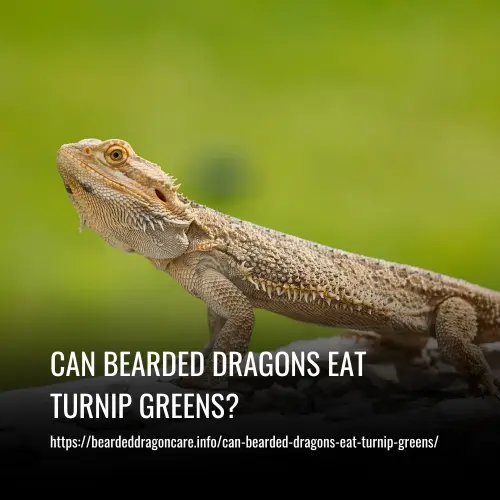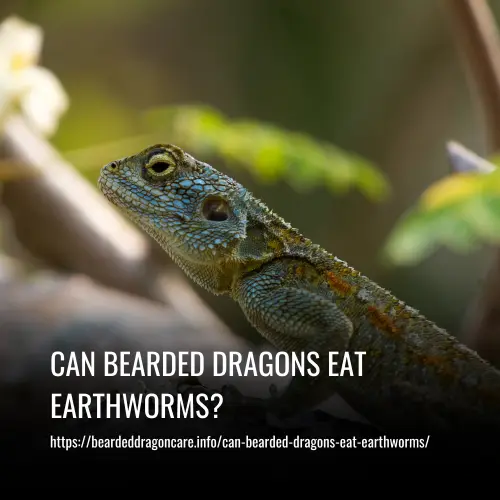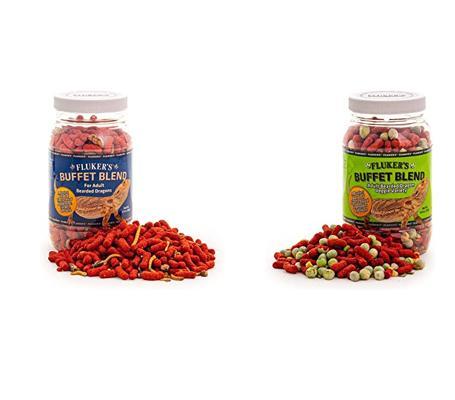Bearded dragons are one of the most popular pet lizards in the world and for good reason. They are relatively easy to care for, and they can make great companions. One important part of caring for a bearded dragon is providing them with a healthy diet.
One food that many bearded dragon owners choose to feed their pets is superworms. Superworms are an excellent source of protein and other essential nutrients, making them an ideal choice for feeding your bearded dragon.
In this article, we will discuss the benefits of feeding superworms to your bearded dragon and provide some tips on how to do it safely and effectively.
What Is a Superworm?
A superworm is the larvae of darkling beetles. It has a similar appearance to mealworms since both species belong to darkling beetle species.
When compared to mealworms, superworms have lengthier and thicker bodies, as well as harder exoskeletons.
Superworms are quite nutritious, as they contain a substantial amount of protein. But they also contain high levels of phosphorus and fat, which can be difficult for lizards such as Bearded Dragons to digest.
For this reason, it is generally recommended that you feed your lizard two to three superworms as an occasional snack once or twice a week, rather than making it their main meal.
Another thing worth noting with superworms is that they need regular food and moisture supplements in order to stay alive for long periods of time – so make sure to provide them with those essentials if you plan on buying some!
Superworms, also called Kingworms, Zoophobas, or ‘Supers’, are the larval stage of the Darkling beetle (Zophobas morio). In many aspects, including their appearance, they are very similar to mealworms, but are significantly larger in size.
In some countries, Superworms are cultured commercially on a large scale. Research shows that they are not only suitable to be fed to Bearded dragons, but show promise as food for humans and other animals too. They are quiet, slow-moving, fairly odorless, need little maintenance, and relatively small amount of space. Superworms are relatively easy to the culture at home but are commonly found for sale at specialized pet shops and online retailers (Buy live Superworms from Amazon.com ).
Can Bearded Dragons eat Superworms?
Yes, bearded dragons can eat superworms. However, too many superworms can be detrimental to their overall health and well-being. Superworms should only be fed in small quantities as a treat, similar to how candy is eaten by humans.
When determining whether or not you should feed your bearded dragon any superworms at all, there are some important factors to consider such as the number of superworms given, when they should eat them, and how often they are allowed to eat them.
This will help you make an informed decision that is best for your bearded dragon’s health.
Advantages of Feeding Bearded Dragons Superworms
Feeding bearded dragons superworms offers numerous health benefits. Superworms tend to be a favorite amongst Bearded Dragons, as they act as an appetizing snack that can also check on their overall health.
If your Bearded Dragon suddenly refuses to eat a superworm, then this is an indication they may not be feeling well and it’s best to take them to the vet for a check up.
Superworms are also packed with hydration, providing water-weight content that many Bearded Dragons may not otherwise take from a bowl of water.
For this reason, these worms are an excellent way of ensuring your pet remains properly hydrated at all times.
Finally, superworms provide great stimulation for Bearded Dragons as they feed off their natural instinct to hunt and prey in order to get their food! This encourages physical activity and nutrition habits which promote healthy growth for both adults and developing hatchlings alike.
Superworm nutritional values*
As a food, Superworms are fairly high in protein, but also high in fat and has a low calcium availability:
- Moisture 61% (5) (8) (14) (17)
- Total protein 49% (4) (5) (8) (9) (14) (18)
- Total fat 36% (5) (7) (9) (14) (18)
- Calcium: Phosphorus ratio 1:9 (8) (9) (14) (18)
* Values are averages calculated from sources. Expressed as %DM except for moisture.
When comparing Superworms with other crawling food such as mealworms (T. molitor) and butterworms (C. moorei) they have more or less the same protein (ca. 49% (4) (5) (8) (9) (14) (18) vs. 54% (1) (2) (4) (5) (6) (8) (9) (14) & 39% (8) (18) (19) ), more or less the same amount of fat (ca. 36% (5) (7) (9) (14) (18) vs. 30% (1) (2) (5) (6) (7) (8) (9) (14) & 74% (9) (18) (19) ), are just as tasty and has higher available calcium levels (Ca:P ratio of 1:9 (8) (9) (14) (18) vs. 1:14 (5) (6) (8) (9) (11) (14) (18) & 1:18 (18) (19) ). When compared to crickets (A. domestica), Superworms also have less available calcium (Ca:P ratio of 1:5 (6) (8) (18) vs. 1:9 (8) (9) (14) (18) ), less protein (ca. 64% (3) (5) (6) (8) vs. 49% (4) (5) (8) (9) (14) (18) ), and more fat (ca. 21% (3) (5) (6) (8) vs. 36% (5) (7) (9) (14) (18) ).
Disadvantages of Feeding Bearded Dragons Superworms
Feeding your Bearded Dragon too many superworms can cause health problems like metabolic bone disease (MBD) because of their high phosphorus and low calcium content.
Juvenile and young Bearded Dragons also can’t digest superworms easily, due to their high fiber content, and this can lead to an impacted digestive tract. Superworms are also more aggressive than mealworms, and this can cause minor cuts around the Bearded Dragon’s mouth from biting or even bites from worms inside the mouth.
In addition, feeding your Bearded Dragons super worms is inconvenient since they cannot be refrigerated like mealworms. There’s also a risk of being bitten by the superworm when feeding it to your pet, which may be a painful experience for you!
All these factors make it important to err on the side of caution and supervise your pet every time you feed it superworms.
Can you give superworms to juvenile bearded dragons?
It is not recommended that you give superworms to juvenile bearded dragons. Baby dragons should never be given superworms, as they may become fatally impacted. Even for juvenile dragons, it would be best to avoid using superworms for their diet altogether.
However, if you do decide that you wanted to feed your dragon superworms, then you would want to make sure that these worms are no bigger than the gap between the dragon’s eyes. Otherwise, your dragon could choke on the superworm and get injured.
Overall, it is generally a safer choice to refrain from feeding your juvenile dragon superworms until they have grown up and become adult-sized dragons. Giving them smaller insects such as flies or crickets instead are a preferable option for their diet as juveniles.
What bugs should not be fed to bearded dragons?
When it comes to feeding your beardy, you should never feed them any wild caught insects or bugs of any type. This is because you don’t know what kinds of diseases, viruses, or parasites these bugs may carry which could potentially make your dragon sick.
Your best bet is to only feed pet-store bought bugs that are safe and free from contaminants.
Some specific types of bugs that must be avoided include those that emit a foul odor such as stinkbugs, bugs with ‘glow in the dark’ parts like fireflies, biting insects such as centipedes, and flying insects like butterflies, bees, and houseflies.
While feeding these types of bugs will not cause an immediate reaction in your dragon, they can lead to health problems down the road if ingested regularly.
How Many Superworms Can I Feed My Bearded Dragon?
When it comes to feeding your bearded dragon, superworms are a great treat, but they should be given in moderation. For an adult bearded dragon, 1-2 small superworms per week is adequate, depending on their size and activity level.
If your dragon is becoming overweight, you should cut down the amount of treats it’s given.
On the other hand, young dragons are able to handle more fat since they are still growing, so feeding them 3-5 small superworms throughout the day in three meals is acceptable.
However, make sure that the superworms you feed them are small enough so that they don’t struggle to consume them – anything larger than the gap between your dragon’s eyes should not be included in their diet.
It’s best to give your dragon superworms after other insects or vegetables for a dessert since this makes them less likely to become picky eaters. Baby dragons should never be given any type of worm since their soft jaws won’t be able to handle the tough texture of a superworm.
Ultimately, make sure that whatever you feed your bearded dragon has to balance by giving them an omnivorous diet with 70% insects and 30% greens for juveniles and 30% insects and 70% greens for adults. This will help aid digestion as they age.
Feeding Superworms to Bearded dragons
Because of their high-fat content, as with mealworms, Superworms should only be offered in limited quantities to prevent obesity and stunting of growth. More nutritious foodstuffs, such as silkworms, crickets and Dubia roaches, should make up the bulk of a Bearded dragon’s food.
If the occasional Superworm is offered, they should be the correct size and be fresh. Superworms can be fed in a shallow, escape-proof dish with calcium supplementation to stimulate their intake. Small or baby Superworms (1.2 – 2 cm / ½ – ¾ ” in length) can be fed to juvenile Bearded dragons. Adult Superworms (3.8 – 6.3 cm / 1½ – 2½ ” in length) is perfect for the occasional adult Bearded dragon snack and to improve poor body condition scores of emaciated individuals. Uneaten Superworms should be removed immediately after feeding is over.
Giant mealworms
It might be easy to confuse Superworms with ‘giant’ mealworms. They are not the same thing. Giant mealworms are mealworms (T. molitor) that were treated with steroids in order to manipulate their life cycle. Rather avoid feeding these to Bearded dragons.
Why Do My Superworms Keep Dying?
If your superworms keep dying, there are several potential causes that could answer the question, “Why do my Superworms keep dying?” Excess moisture, heat, and cold in their habitat can all be a factor in the die-off.
For example, too much moisture could build up if you’re keeping too many worms with poor ventilation, resulting in mold on the substrate or condensation along the walls of their bin.
Too hot of an environment could cause your worms to overheat while too cold of an area can make them deactivate or die altogether.
To avoid the bin from overheating, don’t put it in an area with direct sunlight as this will cause heat to accumulate inside the container.
On the other hand, use a thermometer to monitor temperatures and make sure they’re not kept lower than 65°F for prolonged periods of time – anything below 39°F will cause them to die!
Lastly, remember that superworms are cannibalistic so provide them with enough food and water to prevent dehydration. Take these steps and you’ll have happy and thriving worms!
How to Store and Feed Superworms to Your Bearded Dragon
If you’re looking for a great food source for your beloved bearded dragon, then consider adding superworms to their diet. Superworms are easily available in most pet stores and online stores, making them a convenient option for feeding your dragon. Plus, they’re also quite affordable!
When storing superworms, make sure the container is kept at a temperature between 65°F (18°C) and 80°F (27°C). Fill the container with bran or uncooked oatmeal as their main food source and add potato to maintain moisture levels.
Immediately remove any of the worms that begin to change into a beetle form, so they don’t hurt the other worms. It’s also important not to put superworms in any cooler or freezer because this will cause their death.
Finally, when feeding them to your dragon make sure to follow their appropriate diet schedule and portion size so that your dragon gets enough nutrients but does not become too full.
FAQs:
Do Superworms Bite Humans?
Yes, since some superworms have a tendency to bite, consider putting on gloves or using tweezers when handling them. As an alternative, keep them close to the head to avoid being bitten or put them in a small cup for more convenient feeding.
Are Superworms Dangerous To My Beardie?
Superworms are generally not dangerous to your beardie. However, the size and aggressiveness of some superworms can be a nuisance for smaller bearded dragons due to their hard exoskeleton and tendency to bite. So it’s important to observe your dragon during feeding time and clear off any excess food afterwards.
Conclusion:
Feeding superworms to bearded dragons can be a great way to provide them with the necessary nutrients they need. However, it is important to remember that superworms should only be given to adult dragons and should never be given to juvenile dragons.
Additionally, make sure to remove any of the worms that begin to change into beetle form and avoid putting them in coolers or freezers as this will cause their death. Finally, always follow your dragon’s appropriate diet schedule and portion size when feeding them superworms so that they get enough nutrients without becoming too full.


